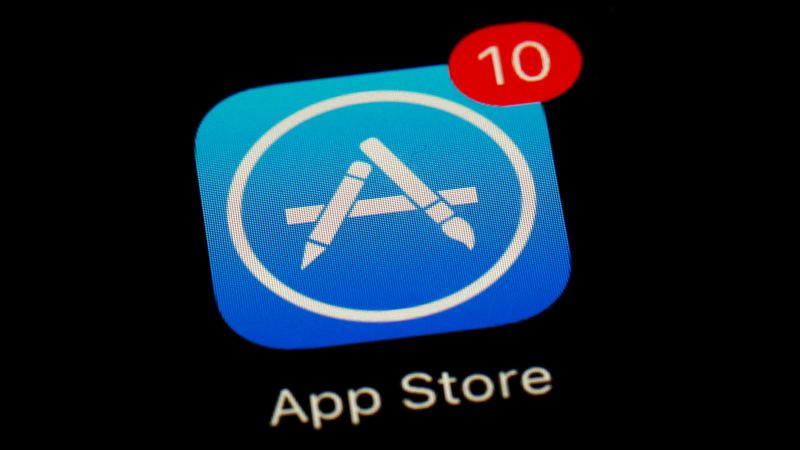Apple Inc., the well-known iPhone manufacturer, is facing serious legal repercussions following a ruling from a federal judge in California, which found that the tech giant had violated a court order originally intended to foster greater competition in its App Store. This ruling was a significant development in the ongoing antitrust lawsuit initiated by Epic Games, the developer of the popular game “Fortnite.” US District Judge Yvonne Gonzalez Rogers, presiding over the case in Oakland, determined that Apple’s actions constituted a failure to comply with the earlier injunction that mandated more competitive practices regarding app downloads and payment methods.
In a detailed 80-page ruling issued on Wednesday, Judge Gonzalez Rogers stated categorically that Apple’s ongoing attempts to interfere with competition were unacceptable. She firmly declared, “This is an injunction, not a negotiation. There are no do-overs once a party willfully disregards a court order.” This strong language underscores the seriousness with which the court views Apple’s transgressions, highlighting the judiciary’s commitment to protecting competitive practices in the tech industry.
In light of Apple’s apparent noncompliance, Judge Gonzalez Rogers has taken the extraordinary step of referring the case to federal prosecutors for a potential criminal contempt investigation. This refers to the legal consequences that can arise when parties fail to adhere to court orders, suggesting that the severity of Apple’s actions could lead to serious repercussions beyond civil liabilities.
As the ruling unfolded, neither Apple nor Epic Games provided immediate statements, which points to the sensitivity and complexity of the situation. Epic Games has long accused Apple of monopolistic practices, specifically alleging that the company stifles competition for app downloads while imposing exorbitant commission fees for in-app purchases—charging up to 30% for transactions completed within the App Store.
The conflict between Apple and Epic Games gained public attention in 2021 when Judge Gonzalez Rogers found that Apple violated California’s competition law. Her ruling mandated that Apple permit developers to direct app users to alternative payment options, thereby increasing competition in a market that Apple has historically dominated. However, despite the ruling, Apple struggled to convince the US Supreme Court in 2022 to overturn Gonzalez Rogers’s injunction, leading to ongoing tensions.
Epic Games took its grievances further in March 2024, asserting that Apple was “blatantly” disregarding the court’s order. Specifically, they pointed out Apple’s introduction of a new 27% commission fee on app developers for purchases made outside the App Store, alongside its preexisting 30% commission for in-App purchases. Such developments signify a troubling trend for competition and innovation in the app ecosystem, raising concerns among developers and consumers alike.
Moreover, Epic Games claimed that Apple began displaying warnings to users about the dangers of making external transactions. This tactic was seen as an attempt to dissuade users from engaging in non-Apple payment options, effectively creating a disincentive for exploring alternative marketplaces. Epic characterized these actions as producing a “commercially unusable” framework for external transactions, further stifling competition and infringing upon the more competitive environment the injunction sought to create.
In defense of its actions, Apple has consistently denied any wrongdoing. The company argued in a court filing that it had made extensive efforts to comply with the ruling while simultaneously safeguarding its core business model and protecting consumer interests. Judge Gonzalez Rogers previously indicated that she believed some of Apple’s modifications were made with the intent merely to suppress competition rather than to foster a more open marketplace.
This ongoing legal battle illustrates the broader implications for technology giants and how they navigate antitrust regulations. The outcome of this case could set a significant precedent for how app-related revenue is distributed and how competition is managed in the highly lucrative digital marketplace, impacting not just Apple, but potentially influencing the entire tech sector’s operational paradigms in the long run.



